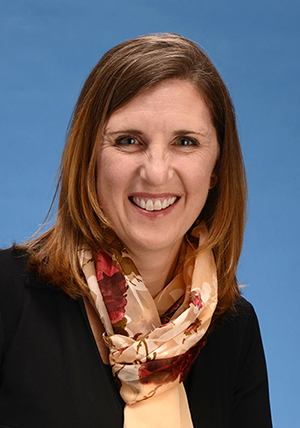Introducing the Department of Microbiology, Genetics, & Immunology
Article Highlights
- The department formerly known as MMG — the Department of Microbiology & Molecular Genetics — has officially changed its name to the Department of Microbiology, Genetics, & Immunology, or MGI.
- The name change will bolster Michigan State University’s efforts to recruit world-class faculty, to educate future leaders and to do transformative research, especially in the field of immunology.
- The change was made with support from partners across campus who have been working to advance the impact and profile of MSU’s immunology work.
There are several reasons for the change, although Victor DiRita, the department chairperson, needed just a couple of sentences to summarize why the decision was made.

“This change is largely to reflect reality,” said DiRita, who is a Rudolph Hugh Endowed Chair in the College of Natural Science. “Our department is much broader than what our previous name indicated.”
The name change will bolster Michigan State University’s efforts to recruit world-class faculty, to educate future leaders and to do transformative research, especially in the field of immunology, the study of the immune system.
“People didn’t feel like this was their home because our name didn’t reflect the work that they do or the classes that they teach,” DiRita said. “This also gives us a bigger profile when we start writing grants for research and training students.”
The name change will also help strengthen existing collaborations with external partners, like the Henry Ford Health + MSU Health Sciences, and create new opportunities within them, DiRita said,
MGI is the first department on campus to explicitly include the term “immunology” in its name, although DiRita stressed it’s far from the only department at MSU where immunologists are furthering the field with their research and training.
“There is a lot of immunology on campus,” said DiRita, who also holds appointments in the Colleges of Human Medicine, Osteopathic Medicine and Veterinary Medicine. These colleges, along with AgBioResearch in the College of Agriculture and Natural Resources, support MSU’s immunology work.
“There was a lot of wind in our sails internally when it came to this decision. We’ve had nothing but support from the colleges and AgBioResearch,” DiRita said. “This name change creates a defined locus for everyone to see and to hopefully start developing new programs around.”
In fact, this name change is just the latest development around immunology at Michigan State University. Over the past several years, MSU’s immunology leaders across campus have been collaborating to hire new immunology faculty, largely through efforts led by the College of Osteopathic Medicine and its Applied Immunology Center for Education and Research, or AICER.
In renaming the department to include immunology, DiRita and his colleagues want to create a more formal platform to continue and bolster those efforts.
“You always leap from where you stand,” DiRita said. “We’re acknowledging that immunology is a bigger part of what we do and we’re building a stronger foundation without subtracting anything.”

“Any area of study – be it immunology, reproductive sciences, physics, literature – benefits tremendously if it's given a home,” said Margaret Petroff, a professor in MGI and the director of the Cell & Molecular Biology Program. “Now, along with AICER, immunology research at MSU has a name and a home.”
Petroff, who studies reproductive immunology, said she initially had concerns when she first joined MSU about whether her interests would align with the goals of MMG based on its name. She’s heard those concerns echoed from prospective faculty and students in the years since and said this name change is important for her and others.
“For years, immunology as a research discipline at MSU was everywhere and nowhere all at once.,” said Petroff, who is also the associate chair for the Department of Pathobiology & Diagnostic Investigation in the College of Veterinary Medicine. “This is not only a little bit of a morale booster, it’s also great for perception of granting agencies, future faculty, future students and potentially even the mission of the department and colleges at MSU.”
MSU’s excellence in microbiology and genetics is still recognized in the department’s name, although, semantically speaking, it has parted ways with the word “molecular.” The term “molecular genetics” has become vague and outdated, DiRita said, making this omission another way in which the department’s new name better reflects today’s realities.
Such evolution is natural for any department that’s been around as long as MGI, which was first established as the Department of Bacteriology and Farm Hygiene in 1900. But that doesn’t make it any less momentous.
“Certainly, the way we talk about our science has evolved and now we’re sharing that with the world,” DiRita said.
Banner image: Microbial colonies grow inside a culture dish. Credit: Lenski Lab